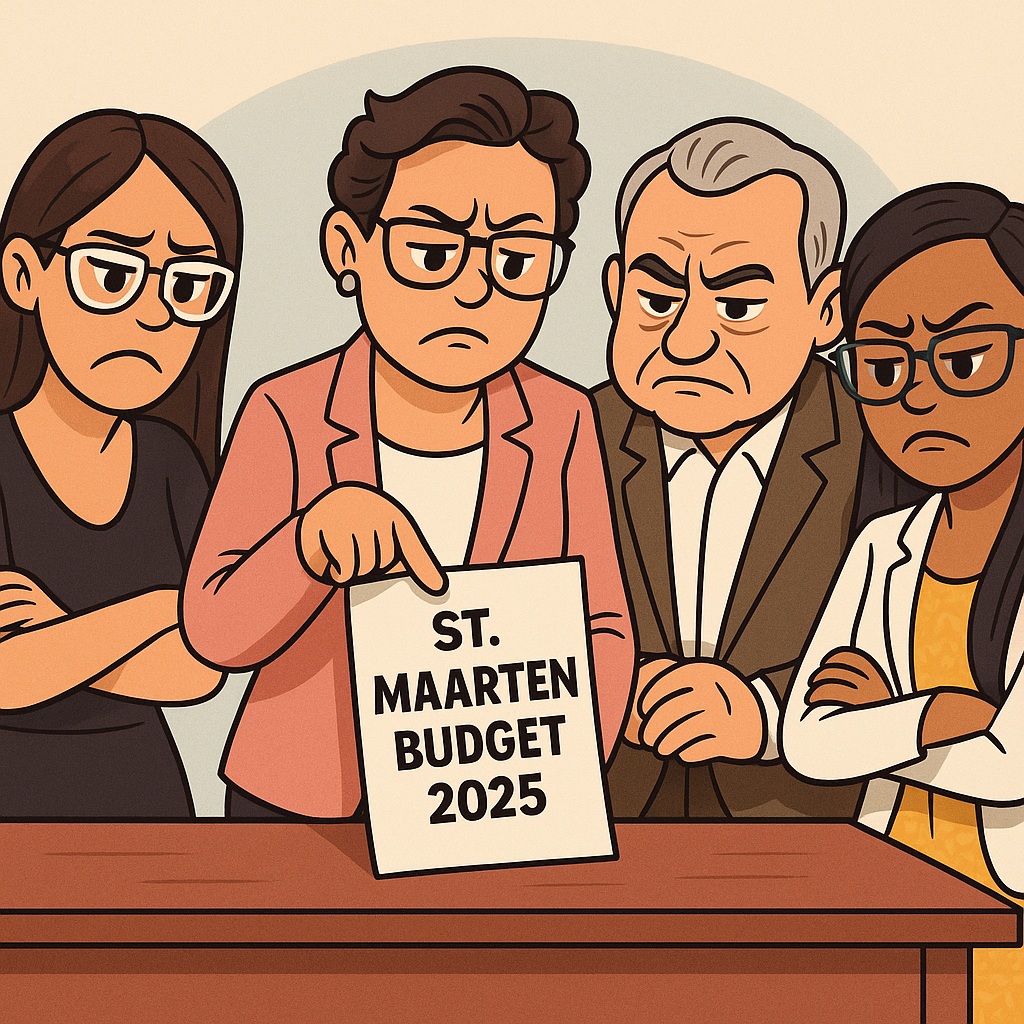 PHILIPSBURG — Financial supervisor Cft remains highly critical of St. Maarten’s financial management. This appears from the Cft’s reaction to execution report for the first quarter of 2025. While the 2025 budget shows a preliminary surplus of 38 million guilders ($21.2 million), the Cft notes that it is unable to establish whether the budget is in line with the standards set in the kingdom law financial supervision.
PHILIPSBURG — Financial supervisor Cft remains highly critical of St. Maarten’s financial management. This appears from the Cft’s reaction to execution report for the first quarter of 2025. While the 2025 budget shows a preliminary surplus of 38 million guilders ($21.2 million), the Cft notes that it is unable to establish whether the budget is in line with the standards set in the kingdom law financial supervision.
The Cft states that the parliament has approved the 2025 budget but that it has not yet been signed by the Governor. The supervisor furthermore says that the execution report lacks qualitative information.
Revenue in the first quarter was 163 million guilders ($91 million), 21 million ($11.7 million) or 15 percent more than in the first quarter of 2024. Expenditures amounted to 125 million guilders ($69.8 million), 6 million ($3.35 million) or 5 percent more than during the first quarter of 2024.
“Due to the late approval of the budget, St. Maarten expects an increase in expenditures in the second half of the year,” the Cft-letter states.
In terms of investments St. Maarten is not doing very well either. In 2023 and 2024 it received capital loans for an amount of 193 million guilders ($107.8 million). Up to the first quarter of 2025, the country invested just 45 million ($25.1 million). Th government nevertheless intends to borrow an additional 52 million ($29 million) in 2025.
The Cft emphasizes in its letter to Finance Minister Marinka Gumbs the importance of establishing a multi-annual investment-agenda and furthermore asks that the country speeds up intended investments.
Anther headache is the country’s financial management. The challenges in this field remain big, the Cft says, in spite of the improvements St. Maarten implemented during the past couple of years.
The parliament’s budget right is also precarious, because budgets are usually established too late. The Cft points out that there is no adequate analysis of the difference between realization and the budget. “This information is also lacking in the first execution report of 2025. Therefore, the insight in the execution of the budget is insufficient and it limits the country’s possibility to make timely adjustments.”
St. Maarten continues with its failure to provide information about the public sector. In spite of repeated requests, the Cft is still waiting for the relevant figures about the years 2021, 2022 and 2023. So far, the government has not defined the public sector for the years 2024 and 2025 either, while it had to provide this information for the years 2026 and 2027 by April 1 of this year.
This lack of information makes it impossible for the Cft to assess whether (or not) St. Maarten is exceeding the interest burden standard.
###
Related article:
Cft critical of St. Maarten’s financial reporting
Responsible bookkeeping
###
ADVERTISEMENT











